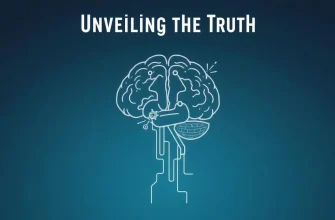Dive into the shadowy world of military experiments with this curated list of sci-fi films. These movies delve into the ethical, moral, and often catastrophic consequences of playing with forces beyond our control. Whether it's genetic manipulation, time travel, or mind control, these films offer a thrilling glimpse into what could happen when science and military ambition collide. Get ready for a rollercoaster of suspense, action, and thought-provoking scenarios that will leave you questioning the boundaries of science and ethics.

The Day the Earth Stood Still (1951)
Description: An alien arrives on Earth to warn humanity about the dangers of atomic warfare. While not strictly a military experiment, it deals with the consequences of human scientific advancements.
Fact: The film was remade in 2008, but the original is iconic for its message and the character of Gort, the robot.
 Watch Now
Watch Now 
The Manchurian Candidate (1962)
Description: A Korean War veteran is brainwashed by communists to become an unwitting assassin. This film explores the manipulation of the human mind through psychological warfare.
Fact: The film was remade in 2004, but the original is often considered superior for its chilling portrayal of mind control.
 Watch Now
Watch Now 
Altered States (1980)
Description: A Harvard scientist experiments with sensory deprivation tanks and hallucinogens, leading to physical and mental transformations. It's a deep dive into the psyche and the limits of human consciousness.
Fact: The film was based on the novel by Paddy Chayefsky, who also wrote the screenplay. It was one of the first films to explore the concept of altered states of consciousness in such detail.
 Watch Now
Watch Now 
The Philadelphia Experiment (1984)
Description: Based on the urban legend, this film tells the story of a WWII naval experiment that inadvertently sends two sailors through time. It's a fascinating look at time travel and its consequences.
Fact: The film was inspired by alleged real-life events, though the actual experiment's details are highly debated.
 Watch Now
Watch Now 
The Fly (1986)
Description: A scientist's experiment with teleportation goes horribly wrong when a fly enters the telepod with him, leading to a grotesque transformation. This film showcases the terrifying potential of unchecked scientific ambition.
Fact: The film was directed by David Cronenberg, who is known for his body horror themes. The transformation scenes were groundbreaking in their use of practical effects.
 Watch Now
Watch Now 
The Butterfly Effect (2004)
Description: A young man discovers he can travel back in time to his childhood, but his attempts to fix past traumas lead to unintended consequences. It's a psychological thriller with time travel elements.
Fact: The film's title refers to the concept that small changes can have large effects, much like the butterfly effect in chaos theory.
 Watch Now
Watch Now 
Splice (2009)
Description: Genetic engineers create a new organism by splicing human DNA with animal DNA, leading to ethical dilemmas and unexpected horrors. It's a cautionary tale about the limits of genetic manipulation.
Fact: The film was controversial for its graphic content and ethical questions, leading to mixed reviews but a cult following.
 Watch Now
Watch Now 
The Invisible Man (2020)
Description: A woman discovers her abusive ex-boyfriend has used an experimental invisibility serum, leading to a terrifying game of cat and mouse. It's a modern take on the classic tale of invisibility and power.
Fact: This film is a reimagining of H.G. Wells' novel, focusing on themes of domestic abuse and empowerment.
 Watch Now
Watch Now 
The Lazarus Effect (2015)
Description: A group of researchers bring a dead subject back to life, only to find that the resurrection has unforeseen and horrifying side effects. It's a modern take on the Frankenstein story.
Fact: The film was originally titled "Reawakening" before being renamed to "The Lazarus Effect."
 Watch Now
Watch Now 
Project X (1987)
Description: Air Force pilots are turned into chimpanzees due to a military experiment gone awry. It's a mix of comedy and sci-fi, exploring the bizarre side of military research.
Fact: The film features real chimpanzees trained to perform human-like actions, which was quite innovative for its time.
 30 Days Free
30 Days Free 








